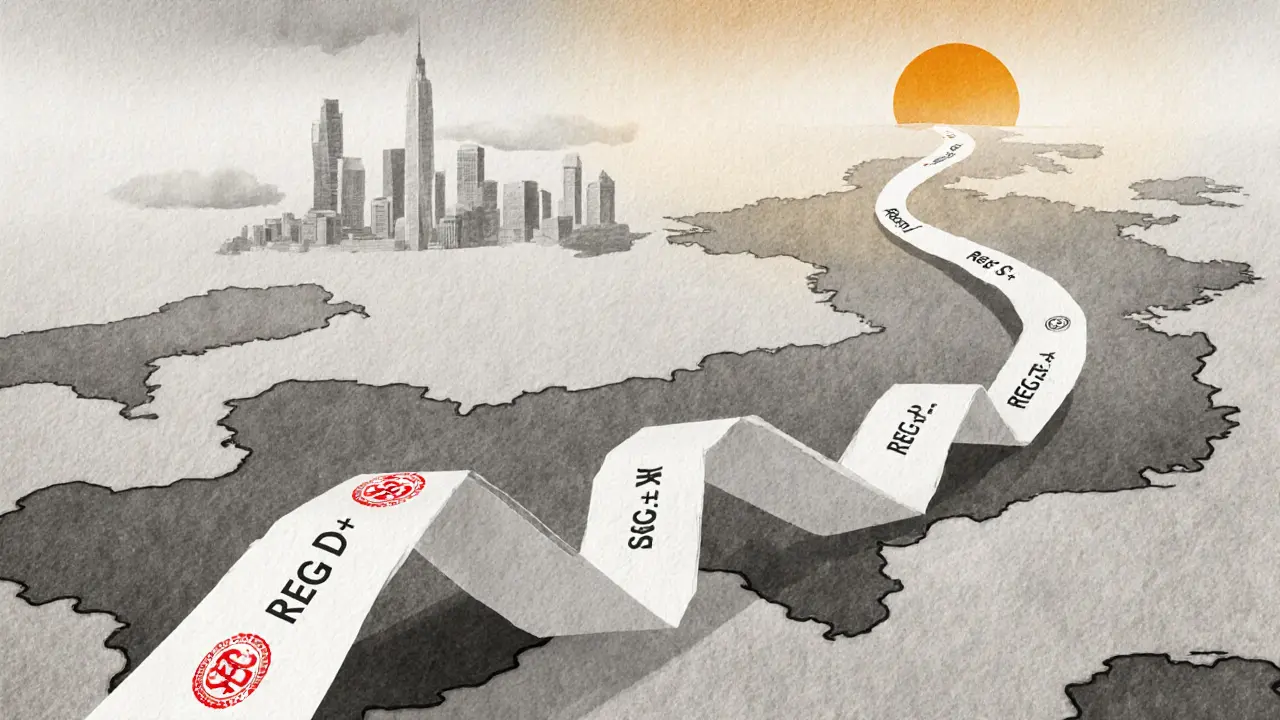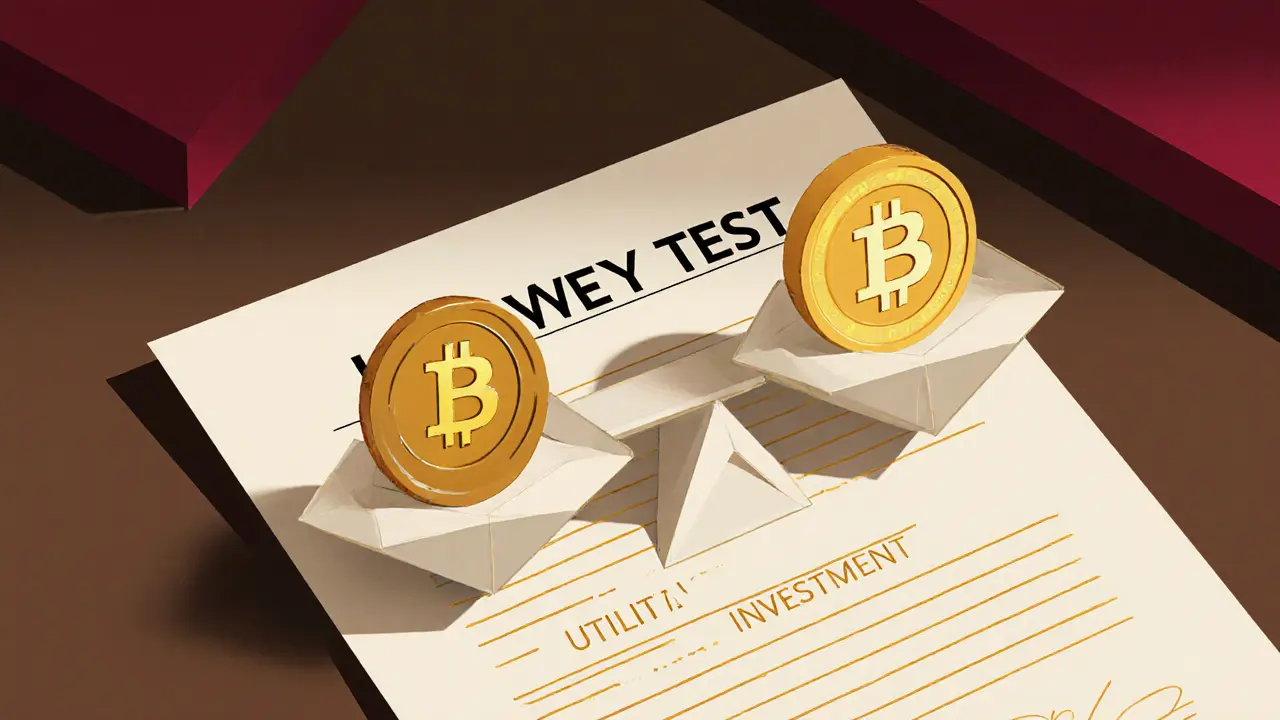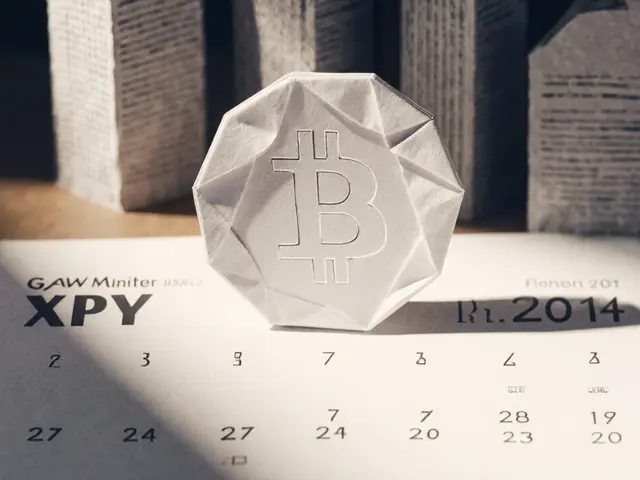Crypto Security Classification Tool
Is Your Token a Security?
Use this tool to determine if your cryptocurrency offering is likely classified as a security under the Howey test and current U.S. regulations.
Result will appear here
Not all cryptocurrency offerings need to be registered with the SEC. That’s the big takeaway in 2025. But figuring out which ones are exempt isn’t simple. The rules are messy, shifting, and often depend on how the token is structured, who’s buying it, and whether it looks like an investment. If you’re launching a token, running a mining pool, or even selling NFTs, you need to know where the line is - because crossing it can mean fines, lawsuits, or worse.
How the SEC Decides If a Crypto Asset Is a Security
The starting point for everything is the Howey test. It’s not a law. It’s a court ruling from 1946 that says if you’re buying into a scheme where you put money into a common enterprise expecting profits mainly from someone else’s effort - that’s a security. The SEC applies this to crypto every day.
Take a token sale. If you’re selling tokens and telling people they’ll make money because the team will build a network, upgrade the tech, or increase demand - that’s likely a security. Even if you call it a “utility token,” the SEC doesn’t care what you call it. They look at the substance. The 2017 DAO Report made this clear: tokens issued through a decentralized organization were still securities because buyers expected returns from the promoters’ work.
Fast forward to 2025. The SEC still uses the Howey test as its main tool. But now, they’re also making exceptions - carefully. For example, in March 2025, the SEC said proof-of-work mining itself isn’t a security. That means if you’re running a miner and earning Bitcoin as a reward, you’re not selling a security. But if you’re selling shares in a mining pool that promises investors a cut of the Bitcoin mined? That’s a different story. That’s an investment contract. And that’s regulated.
Major Federal Exemptions You Can Actually Use
If your crypto project isn’t a public offering, you’ve got a few legal paths to avoid full SEC registration. Here are the three most practical ones:
- Regulation D (Rule 506): Lets you raise unlimited money from accredited investors - people with $1 million net worth (excluding primary home) or $200,000+ annual income. You can’t advertise publicly. You must verify investor status. This is the most common route for early-stage crypto startups. Think of it as private equity for blockchain.
- Regulation S: Allows token sales outside the U.S. without SEC registration - as long as you don’t market to Americans. If you’re based in Singapore or Switzerland and your website blocks U.S. IPs, you’re probably okay. But if a U.S. investor finds you anyway? You’re at risk. The SEC has cracked down on offshore projects that still attracted U.S. buyers.
- Regulation A+ (Tier 2): Lets you raise up to $75 million from the public - including non-accredited investors - with a simplified SEC filing. You still need disclosures, but not as much as a full IPO. It’s expensive and slow, but it’s the only way to do a “mini-IPO” in crypto. A few projects have used this for tokenized real estate or music rights.
These aren’t loopholes. They’re legal tools. But they come with rules. Use them wrong, and you’re back in enforcement territory.
What the SEC Is About to Change - And Why It Matters
In May 2025, SEC Commissioner Hester Peirce signaled a major shift. The agency is considering an exemptive order that would let firms use blockchain to issue, trade, and settle securities without traditional stock exchange infrastructure. Imagine a token representing Apple stock, traded on a decentralized platform. If approved, this would be the first official green light for tokenized securities on DLT.
There’s a catch: firms would need to meet strict market integrity rules. No wash trading. No manipulation. Transparent order books. This isn’t about letting anyone do anything. It’s about letting innovators do the right thing.
And then there’s NFTs. In March 2025, Peirce hinted the SEC might issue guidance saying art NFTs - ones bought for personal enjoyment, not profit - aren’t securities. That’s huge. Right now, many NFT projects skirt the line by promising “future utility” or “royalty sharing.” If the SEC says pure digital art doesn’t count, that opens the door for creators to fund projects without registering as a securities offering. But if your NFT is bundled with a profit-sharing agreement? Still a security.

State Rules Add Another Layer
Federal rules aren’t the whole story. States have their own securities laws - and some are more flexible than others.
Louisiana’s Virtual Currency Business Act is one of the clearest. It says you don’t need a license if:
- You’re a bank or credit union already regulated under federal law
- You’re just exchanging crypto for fiat - like a money transmitter
- You’re using crypto for personal use - buying coffee, sending money to a friend
- Your annual crypto activity is under $35,000
- You’re an attorney holding crypto in escrow
That last one matters. A lot of small crypto businesses operate under $35k a year - freelance devs, indie NFT artists, local crypto meetup organizers. They’re not raising funds from investors. They’re just transacting. Louisiana says that’s fine. Other states aren’t as clear. New York’s BitLicense is brutal. California doesn’t have a specific law but still enforces securities rules aggressively.
If you’re a small operator, check your state’s rules. You might be exempt without even knowing it.
What the SEC Has Already Shut Down
Exemptions aren’t free passes. The SEC has a long record of going after projects that crossed the line.
- Telegram (2019): Raised $1.7 billion for its Gram token. Sold to U.S. investors. SEC blocked it. Telegram had to return $1.2 billion.
- BlockFi (2022): Offered interest-bearing crypto accounts. Treated like a savings account? The SEC said no - it was an unregistered security. Paid $100 million in fines.
- Ripple (2023): Still fighting over whether XRP is a security. The court ruled that XRP sales to the public were securities, but sales to exchanges weren’t. That’s a mixed bag - and it’s still being appealed.
These cases aren’t outliers. They’re warnings. The SEC isn’t trying to kill crypto. It’s trying to stop fraud. If your project looks like a Ponzi scheme disguised as blockchain, you’re on the list.

What About Federal Employees?
If you work for the government, crypto rules get weird. The Office of Government Ethics (OGE) says Bitcoin ETFs - even though they’re publicly traded and registered under the Securities Exchange Act - don’t count as “securities” under their rules. Why? Because OGE’s definition only includes common stock, corporate bonds, municipal bonds, and a few others. Bitcoin ETFs aren’t on that list.
That means federal employees can hold Bitcoin ETFs without violating conflict-of-interest rules. But they still can’t trade crypto futures or private token sales without disclosure. The rules are inconsistent - and that’s intentional. OGE is trying to avoid overreach while still protecting public trust.
Where the Gaps Are - And What You Should Watch
Right now, the biggest risk isn’t breaking the law. It’s not knowing what the law is.
For example:
- Tokenized revenue streams (like sharing 10% of a mining operation’s profits) are almost always securities.
- Staking-as-a-service platforms that promise fixed returns? Likely securities.
- DAOs that let members vote on treasury spending? Still risky - the SEC hasn’t given them a pass.
The SEC’s April 2025 guidance says issuers must evaluate their own facts. That means no one-size-fits-all answer. You need legal advice - not a Reddit thread.
The real opportunity lies in the gray areas. If you’re building a platform for tokenized real estate under Reg A+, or an NFT marketplace that avoids profit-sharing promises, you’re on solid ground. The regulators are watching - but they’re also listening.





Stephanie Alya
So let me get this straight - if I mine Bitcoin and get paid in BTC, I’m chill, but if I pool my miners and promise investors a cut? Suddenly I’m a SEC target? 😅 Like, can we please stop pretending crypto is anything other than a giant game of hot potato with legal papers? 🤦♀️
olufunmi ajibade
This is why Africa needs its own crypto legal framework - not waiting for the SEC to decide what’s legal for us. We’re not just investors; we’re builders. Why should a 1946 court case dictate how a Nigerian teen buys tokens to fund her AI startup? 🇳🇬🔥
Chris Houser
Reg D 506 is the real MVP for early-stage crypto projects. Accredited investor verification is a pain, sure, but it’s the cleanest path to avoid SEC wrath. Just make sure your KYC is bulletproof - one slip and you’re in the crosshairs. Also, don’t even think about marketing on Twitter. The SEC watches everything. 🚨
William Burns
It is, of course, profoundly concerning that the SEC has not yet codified a comprehensive, statutory framework for digital asset classification - thereby leaving market participants in a state of regulatory uncertainty that is, frankly, incompatible with the principles of due process and fair notice under the Fifth Amendment. This is not innovation. This is chaos.
adam pop
They’re using the Howey test? That’s a 1946 ruling about orange groves. Are you kidding me? This is all a setup. The Fed wants to control every digital transaction. They’ll ban crypto entirely soon. Mark my words: they’re building a digital ID system to track every coin you own. This isn’t regulation - it’s totalitarianism.
Steve Roberts
Regulation S? Yeah, right. You think blocking U.S. IPs is enough? The SEC has bots that track VPNs. They’ve already fined three Nigerian firms for ‘indirect targeting’ because someone in Texas found their site via a Google ad. Stop pretending you’re clever. You’re not.
John Dixon
Let me just say this - if you’re calling your NFT a “digital collectible” but secretly promising royalties? That’s fraud. And if you’re not getting fined? You’re just lucky. The SEC doesn’t forget. And neither do I. 🙄
Brody Dixon
It’s wild how much confusion there is around this. I’ve seen so many small creators panic over NFTs, thinking they’re breaking the law just because they sold art. But if you’re not promising returns, you’re fine. You’re not a bank. You’re an artist. That’s not a security - it’s creativity.
Mike Kimberly
One must recognize that the regulatory architecture surrounding digital assets is not monolithic, nor should it be treated as such. The jurisdictional variance between federal and state frameworks - particularly Louisiana’s $35,000 threshold - reflects a pragmatic, decentralized approach to compliance that is both innovative and constitutionally sound. It is precisely this kind of localized nuance that allows grassroots innovation to flourish without being crushed under the weight of federal overreach.
angela sastre
For real? If you’re just selling digital art and not promising profits, you’re golden. I’ve sold NFTs of my cat for $50 and no one’s coming after me. The SEC has better things to do than chase hobbyists. Chill out, creators - your art isn’t a security unless you make it one.
Will Atkinson
Love how the SEC is slowly opening the door for tokenized securities on blockchain - finally! This could be the moment crypto goes mainstream. Imagine Apple stock as a token, traded 24/7 with zero intermediaries. It’s not sci-fi anymore. It’s coming. And honestly? I’m here for it. 🚀
monica thomas
It is imperative to distinguish between the technical architecture of blockchain and the economic substance of the instrument being issued. The fact that a token is deployed on a decentralized ledger does not, in and of itself, confer exemption from securities law. The Howey test remains the appropriate analytical framework.
Edwin Davis
Why are we letting a bunch of bureaucrats in Washington decide what we can do with our money? This is America. We don’t need their permission to trade crypto. If they want to shut us down, they’ll have to go through 300 million people first. #CryptoFreedom
emma bullivant
wait… so if i buy an nft of a painting and then i sell it for 10x… is that illegal? i mean… i didn’t promise anything… i just… bought it… and then it went up… like… what if i didn’t even know it was a security??
Michael Hagerman
THEY’RE COMING FOR THE NFTS. I SAW IT IN A DREAM. THEY’RE BUILDING A DATABASE TO TRACK EVERY SINGLE DIGITAL ARTWORK YOU OWN. THEY’LL TAX YOU FOR EACH ONE. THEY’LL MAKE YOU PAY FOR THE RIGHT TO BE AN ARTIST. THE FEDS ARE SCARED. THEY KNOW WE’RE THE FUTURE.
Laura Herrelop
They’re using the Howey test? That’s from 1946. The SEC is a puppet of Wall Street. They don’t care about fairness. They care about control. The whole crypto space is being weaponized to destroy decentralized finance so banks can keep their monopoly. The minute you see a ‘utility token’ being regulated - that’s the moment they’ve already won.
Nisha Sharmal
USA always thinks they own the rules. In India, we don’t need your SEC. We’ve got our own regulators. And guess what? We’re not scared of you. Your laws don’t apply here. Your court cases? Irrelevant. We’re building our own future.
Karla Alcantara
Small creators: you’re not the enemy. The SEC isn’t here to stop you from selling digital art. They’re here to stop the scammers. If you’re just sharing your work and not promising returns, you’re safe. Keep creating. We’ve got your back.
Jessica Smith
Reg A+? Please. It costs $500k to file. Only hedge funds can afford it. This isn’t access. It’s a paywall. The SEC lets the rich play while everyone else gets fined. Classic.
Manish Gupta
Bro, I just bought a Bored Ape for $200 and now I’m a security risk? 😂 If that’s the case, then every gamer who sells a skins on Steam is breaking federal law. The SEC needs to chill.
Gabrielle Loeser
It is essential to emphasize that regulatory clarity must be achieved through transparent, rule-based frameworks - not through ad hoc enforcement actions or ambiguous guidance. The current state of affairs undermines market confidence and discourages responsible innovation.
Cyndy Mcquiston
Why are we even talking about this? Crypto is illegal in the US. They just haven’t shut it down yet. Wait till the next election.
Abby Gonzales Hoffman
Hey - if you’re a freelancer making under $35k in crypto a year? You’re fine. Louisiana got it right. Don’t overthink it. Just keep doing your thing. The system isn’t out to get you. It’s just slow. You’re not the problem.
Rampraveen Rani
Bro I just sold a digital painting and got 5 ETH. No promises. No roadmap. Just art. If that’s a security, then every Instagram artist is a felon. 😂 The SEC is out of touch. Keep creating, fam. 🚀
ashish ramani
Reg S is dangerous. If a single U.S. person buys your token, you’re liable. It’s not about blocking IPs - it’s about intent. The SEC looks at who you talk to, who shares your link, who retweets you. One mistake and it’s over.
Natasha Nelson
I just want to sell my digital stickers… why does this have to be so complicated? I’m not a lawyer. I’m not raising millions. I just want to make art and get paid. Can’t we just… be allowed to do that?
Sarah Hannay
It is deeply troubling that regulatory ambiguity continues to be weaponized against decentralized innovation. The absence of clear statutory guidance constitutes a violation of the principle of legality - and it disproportionately impacts small-scale participants who lack legal resources.
Richard Williams
Look - if you’re not promising returns, you’re probably okay. I’ve talked to SEC lawyers. They’re not hunting artists. They’re hunting the guys selling ‘guaranteed 20% monthly returns’ on Telegram. Focus on being honest, not scared.